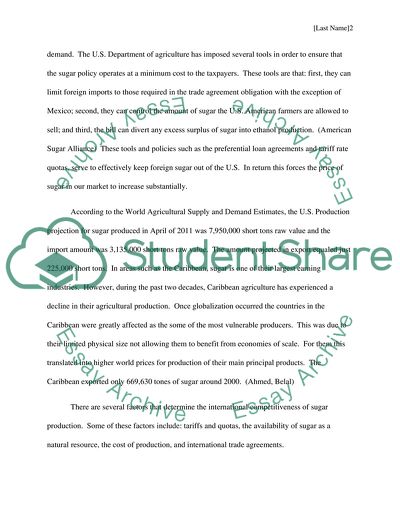Cite this document
(“The Impact of Globalization and Free Trade on the U.S. Sugar Policy Essay - 1”, n.d.)
The Impact of Globalization and Free Trade on the U.S. Sugar Policy Essay - 1. Retrieved from https://studentshare.org/social-science/1576951-the-us-sugar-policy-case-study
The Impact of Globalization and Free Trade on the U.S. Sugar Policy Essay - 1. Retrieved from https://studentshare.org/social-science/1576951-the-us-sugar-policy-case-study
(The Impact of Globalization and Free Trade on the U.S. Sugar Policy Essay - 1)
The Impact of Globalization and Free Trade on the U.S. Sugar Policy Essay - 1. https://studentshare.org/social-science/1576951-the-us-sugar-policy-case-study.
The Impact of Globalization and Free Trade on the U.S. Sugar Policy Essay - 1. https://studentshare.org/social-science/1576951-the-us-sugar-policy-case-study.
“The Impact of Globalization and Free Trade on the U.S. Sugar Policy Essay - 1”, n.d. https://studentshare.org/social-science/1576951-the-us-sugar-policy-case-study.


